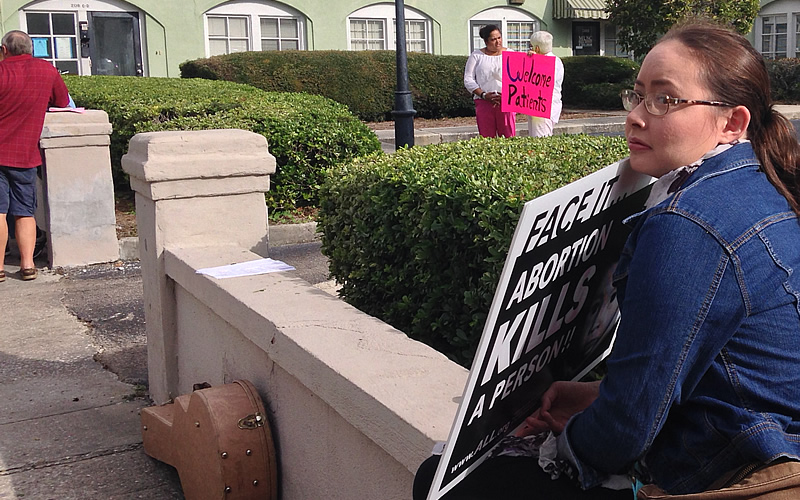
By Andy Brack | Now-confirmed reports about this week’s leaked U.S. Supreme Court draft decision to overturn the landmark Roe v. Wade abortion case will have a huge impact – so huge that traditional political calculations are being thrown out the window.
 November’s normally drab midterm federal elections will shift monumentally to thwart judicial abortion activism that’s been boiling for years. Mainstream voters, already tired of Republican culture wars and outraged over the GOP’s empowerment of the Jan. 6 insurrection at the U.S. Capitol, will now rush to the polls to keep Democrats in power in Washington.
November’s normally drab midterm federal elections will shift monumentally to thwart judicial abortion activism that’s been boiling for years. Mainstream voters, already tired of Republican culture wars and outraged over the GOP’s empowerment of the Jan. 6 insurrection at the U.S. Capitol, will now rush to the polls to keep Democrats in power in Washington.
In congressional races slightly favoring Republicans, such as U.S. Rep. Nancy Mace’s First District reelection bid, Democrats will now become competitive. In places where Republicans thought they might be able to pick up a seat and retake the U.S. House, voters in many places won’t trust them enough to stop the madness to elect them.
Donald Trump’s 2016 presidential victory led to the appointment of three radicals to the Supreme Court – Brett Kavanaugh, Neil Gorsuch and Amy Coney Barrett. They joined longtime uber-conservatives – Samuel Alito and Clarence Thomas – and Chief Justice John Roberts, viewed these days as more moderate, to form a 6-3 bloc. Such a lopsided majority made it just a matter of time before the justices fiddled seriously with Roe.
Liberals, however, didn’t bank on it being actually overturned. And neither, we suspect, have most voters, a majority of whom support abortion rights. Now there’s extra motivation for them to get active. And imagine the fuming rallies coming to college campuses. All of this activity will send a new, engaged breed of pragmatic politicians to Washington. And that, we hope, will include some old-time moderate Republicans instead of the knee-jerk breed who have been multiplying like rabbits.
The decision to overturn Roe will send organizers into overdrive. About 239 million Americans were eligible to vote in 2020, but only 160 million voted. That means about 80 million Americans, some registered and others not, didn’t participate. They will be the focus of activists.
Democrats tend to do a much better job at registering people and getting them to the polls – when they really work at organizing. Just look at what’s happening in neighboring Georgia, now a purple state. Past efforts by Democratic superstar Stacey Abrams, now running for governor again, have paid off by shaking up the old guard. Dozens of candidates are running statewide in both parties because Democrats put up lots of candidates, and Republicans responded in kind. The winner? Voters, who now have scads of choices.
As organizers ramp up the political temperature, more people will register and then vote. Democratic leaders often whine that if their voters really participated, they’d win every time. In South Carolina, for example, more than 540,000 people participated in the 2020 Democratic presidential primary. But months later, 466,000 Republicans took part in the GOP state primary, compared to only 284,000 Democrats in their state primary. Imagine if all of the people who showed up for the presidential primary turned out in the November general election – Republicans in South Carolina wouldn’t take as many seats.
Unfortunately in South Carolina’s 2022 elections, any surge in voter turnout won’t impact the S.C. House of Representatives, where gerrymandered districts have already determined outcomes in a majority of races. Only about a dozen of 124 races will be truly competitive, which means Dems may pick up a few seats. But it could make a difference in a few statewide races.
And nationally, overturning Roe v. Wade should lead to the most interesting midterm elections since the Great Depression.
Yes, past elections have consequences. But so, too, will a Supreme Court decision on future elections.
Andy Brack is publisher of the Charleston City Paper and editor and publisher of Statehouse Report. Have a comment? Send to: feedback@statehousereport.com.



Primary figures are a weak indicator of party affiliation because we are an open primary state. Often the only contested state elections are in the Republican primary. I know many Republicans who voted in the 2020 Democratic presidential primary and many Democrats who frequently vote in the state Republican primary. I support continuing open primaries because it gives all citizens a chance to influence the outcome.